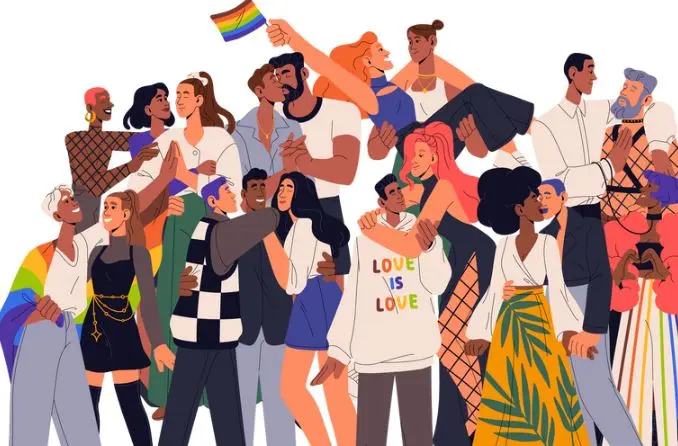Fostering healthy relationships within the LGBTQ+ community involves unique considerations and challenges. Whether you are in a romantic relationship, a close friendship, or a familial bond, these principles can help ensure that your relationships are supportive, respectful, and fulfilling.
Effective Communication
Open and honest communication is fundamental to any relationship. For LGBTQ+ couples, this includes discussing feelings, needs, and boundaries clearly and respectfully. Active listening is equally important, ensuring that each person feels heard and valued. LGBTQ+ counselling services can offer valuable support in developing these skills and navigating any communication barriers that might arise.
Tips for Effective Communication:
- Active Listening: Pay full attention to your partner without planning your next response.
- Open Expression: Share your thoughts and feelings honestly, even when it’s difficult.
- Non-Verbal Cues: Be mindful of body language, facial expressions, and tone of voice, as these can convey as much as words do.
Setting Healthy Boundaries
Boundaries are essential for maintaining respect and ensuring that each person feels safe within the relationship. This involves discussing and agreeing on what is comfortable and acceptable in terms of physical, emotional, and sexual interactions. Understanding and respecting consent is a critical aspect of setting these boundaries.
Steps to Setting Boundaries:
- Identify Your Limits: Understand your own needs and limits before discussing them with your partner.
- Communicate Clearly: Discuss your boundaries openly and listen to your partner’s boundaries as well.
- Respect Consent: Always seek and respect consent in all interactions.
Celebrating Achievements and Supporting Goals
A key aspect of healthy relationships is celebrating each other’s successes and supporting each other’s personal and professional goals. This creates a positive environment where both individuals feel valued and encouraged.
Ways to Celebrate and Support:
- Acknowledge Milestones: Celebrate both big and small achievements together.
- Support Goals: Show interest in your partner’s goals and offer support and encouragement.
- Create Accountability: Help each other stay accountable to personal goals in a supportive manner.
Addressing Internalised Homophobia and Transphobia
Internalised negative beliefs about one’s own sexual orientation or gender identity can harm relationships. It’s crucial to recognise and address these feelings, often with the help of a supportive therapist who understands LGBTQ+ issues.
Strategies for Addressing Internalised Bias:
- Seek Counselling: Professional help can provide strategies to overcome internalized homophobia and transphobia.
- Positive Affirmations: Practice affirming your identity and self-worth.
- Community Support: Engage with LGBTQ+ groups and communities to find acceptance and understanding.
Building and Maintaining Support Networks
Having a strong support network is vital. This includes friends, family, and LGBTQ+ communities that understand and support your relationship. Positive interactions within these networks can enhance relationship satisfaction and provide a sense of belonging.
Building Support Networks:
- Join LGBTQ+ Groups: Participate in community events and organisations.
- Foster Friendships: Maintain and build friendships that support and understand your relationship.
- Family Involvement: Where possible, involve supportive family members in your life.
Conflict Management
Disagreements and conflicts are natural in any relationship. How they are managed can significantly impact the health of the relationship. Constructive conflict management involves addressing issues calmly and respectfully, seeking solutions that work for both partners.
Conflict Management Techniques:
- Stay Calm: Take time to cool down before addressing conflicts.
- Focus on Solutions: Look for mutually beneficial solutions rather than winning the argument.
- Seek Help if Needed: Consider couples counselling to develop effective conflict resolution skills.
By focusing on these key elements, LGBTQ+ individuals can cultivate relationships that are not only healthy and supportive but also resilient and fulfilling.


